Celebrate the Rich Culture and Traditions of Sango Festival – June 30
The African continent is known for its vibrant and colorful festivals that showcase the rich culture and traditions of its people. One such festival is the Sango Festival, celebrated on June 30 each year. This festival is dedicated to the worship of Sango, the god of thunder and lightning in Yoruba mythology.
The Sango Festival is a joyous celebration that brings people from all over the world to experience the customs and rituals of the Yoruba people. It is a time of feasting, dancing, and honoring the powerful deity that is believed to protect against evil and bring prosperity to the community.
The Sango Festival is deeply rooted in the history of the Yoruba people and has been celebrated for centuries. It is believed that Sango was once a powerful king in Oyo, a city in southwestern Nigeria, and upon his death, he was worshipped as a deity for his bravery and strength. The festival is a way to remember and invoke his spirit for protection and guidance.
One of the main highlights of the Sango Festival is the colorful parade that takes place on June 30. People dress in bright, traditional attire and dance through the streets, accompanied by drums, songs and chants. It is a breathtaking sight to see and a true celebration of the Yoruba heritage.
Along with the parade, there are also other activities and ceremonies that take place during the Sango Festival. These include traditional rituals, performances of traditional dances and plays, and the sharing of traditional foods and drinks. The entire community comes together to celebrate, making it a truly unifying experience.
One of the most awe-inspiring sights at the Sango Festival is the spiritual possession ceremony. It is believed that during this ceremony, individuals become vessels for the gods and are able to communicate with them. This is a sacred and spiritual experience that is highly revered by the Yoruba people.
The festival also features a market where local artisans and merchants can sell their traditional crafts and wares. This is a great opportunity for visitors to purchase authentic Yoruba souvenirs and support the local economy.
The Sango Festival is a time of joy, celebration, and reflection for the Yoruba people. It is a way to honor their history, culture, and traditions, and to pass them down to future generations. If you ever have the chance to attend this festival, don’t miss out on the opportunity to immerse yourself in the vibrant and fascinating world of the Yoruba people.
Sentences:
The Sango Festival is a vibrant and colorful celebration of the Yoruba culture and traditions.
It is dedicated to the worship of Sango, the god of thunder and lightning in Yoruba mythology.
Sango was a powerful king in Oyo and is now worshipped as a deity for his bravery and strength.
The festival is deeply rooted in the history of the Yoruba people and has been celebrated for centuries.
A main highlight of the Sango Festival is the colorful parade that takes place on June 30.
Traditional rituals, dances, plays, and food are also an important part of the festival.
The spiritual possession ceremony is a sacred and highly revered experience during the Sango Festival.
The festival also features a market where visitors can purchase authentic Yoruba souvenirs.
The Sango Festival is a vibrant and colorful celebration of the Yoruba culture and traditions.
It is dedicated to the worship of Sango, the god of thunder and lightning in Yoruba mythology.
Sango was a powerful king in Oyo and is now worshipped as a deity for his bravery and strength.
The festival is deeply rooted in the history of the Yoruba people and has been celebrated for centuries.
A main highlight of the Sango Festival is the colorful parade that takes place on June 30.
Traditional rituals, dances, plays, and food are also an important part of the festival.
The spiritual possession ceremony is a sacred and highly revered experience during the Sango Festival.
The festival also features a market where visitors can purchase authentic Yoruba souvenirs.
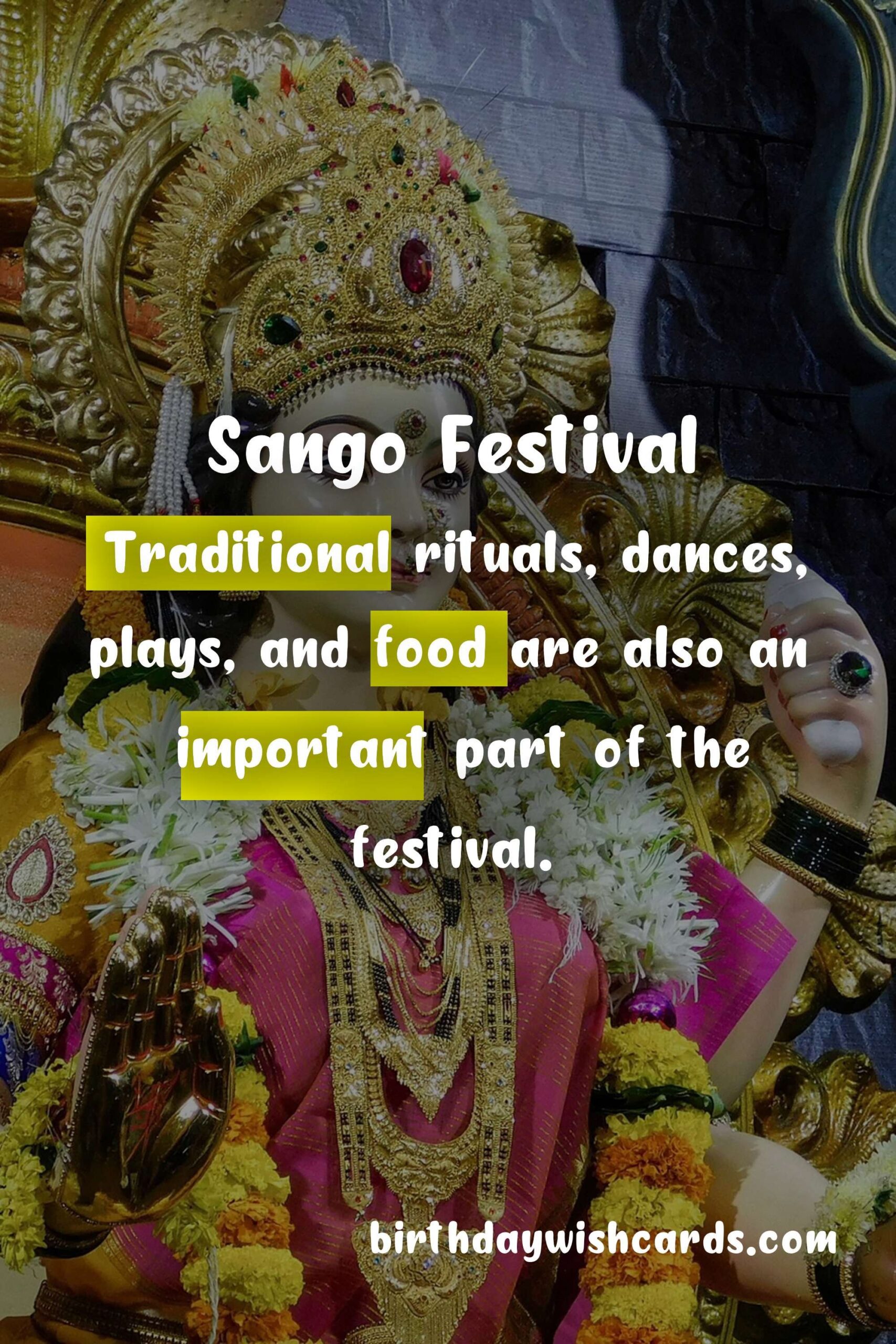
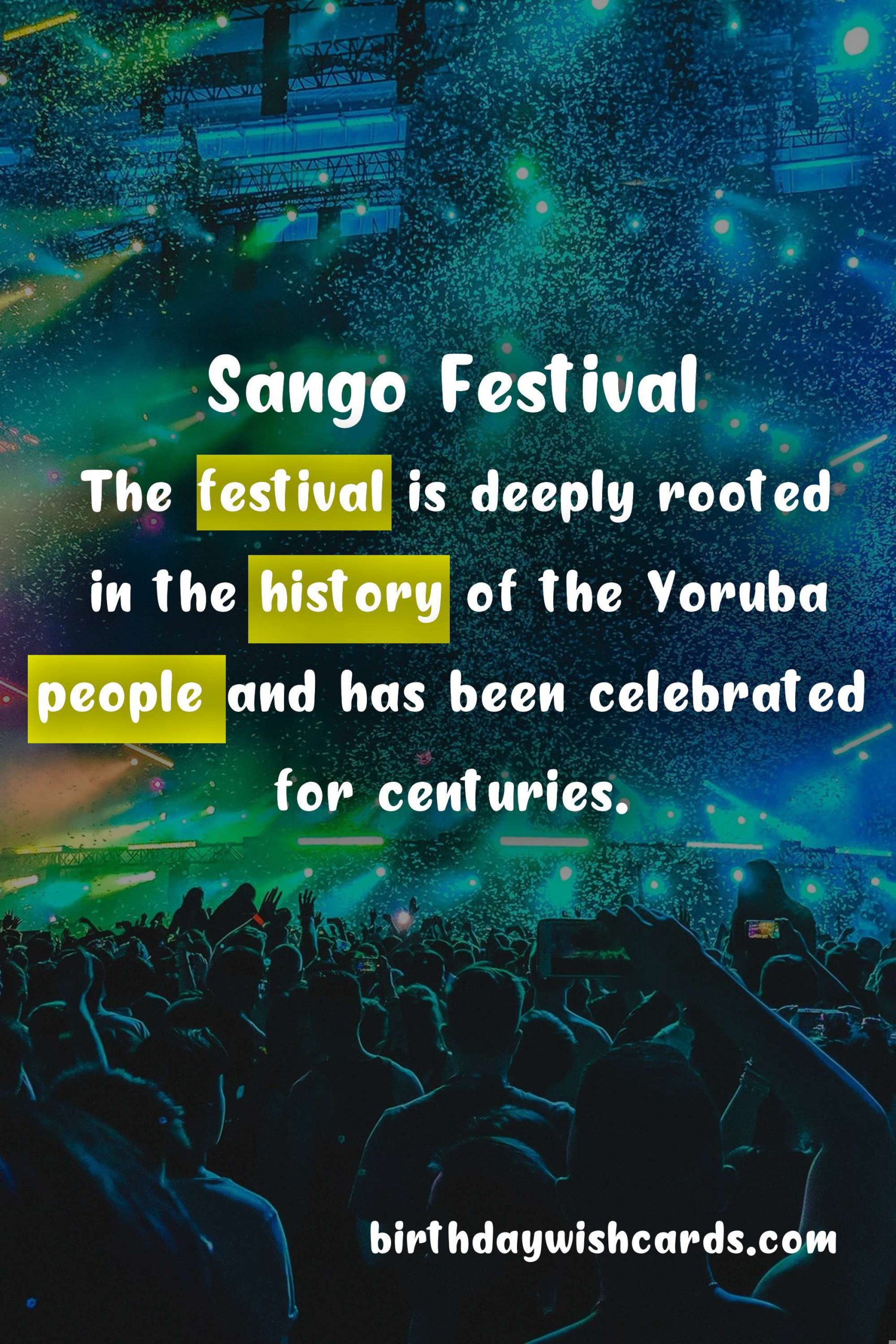


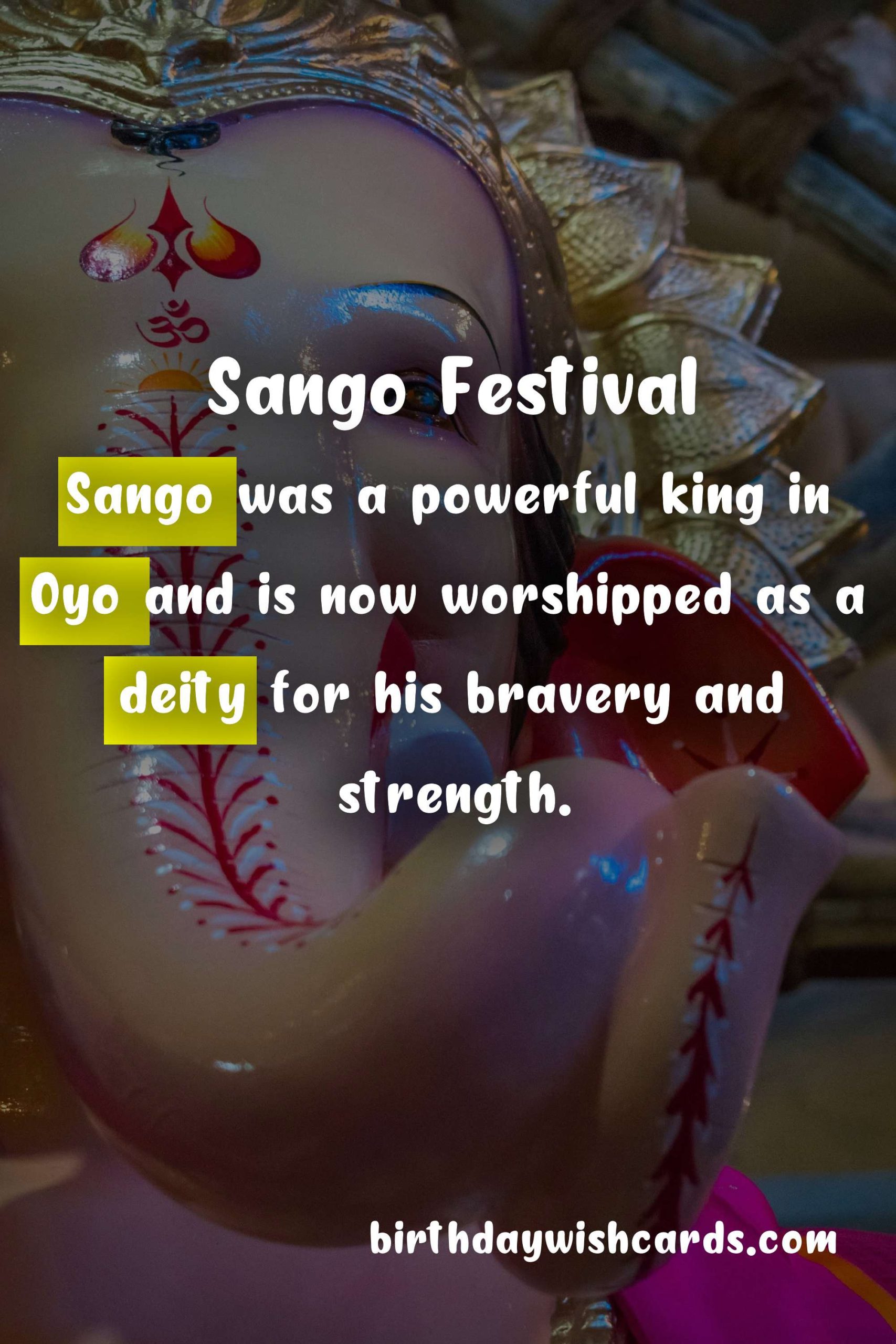

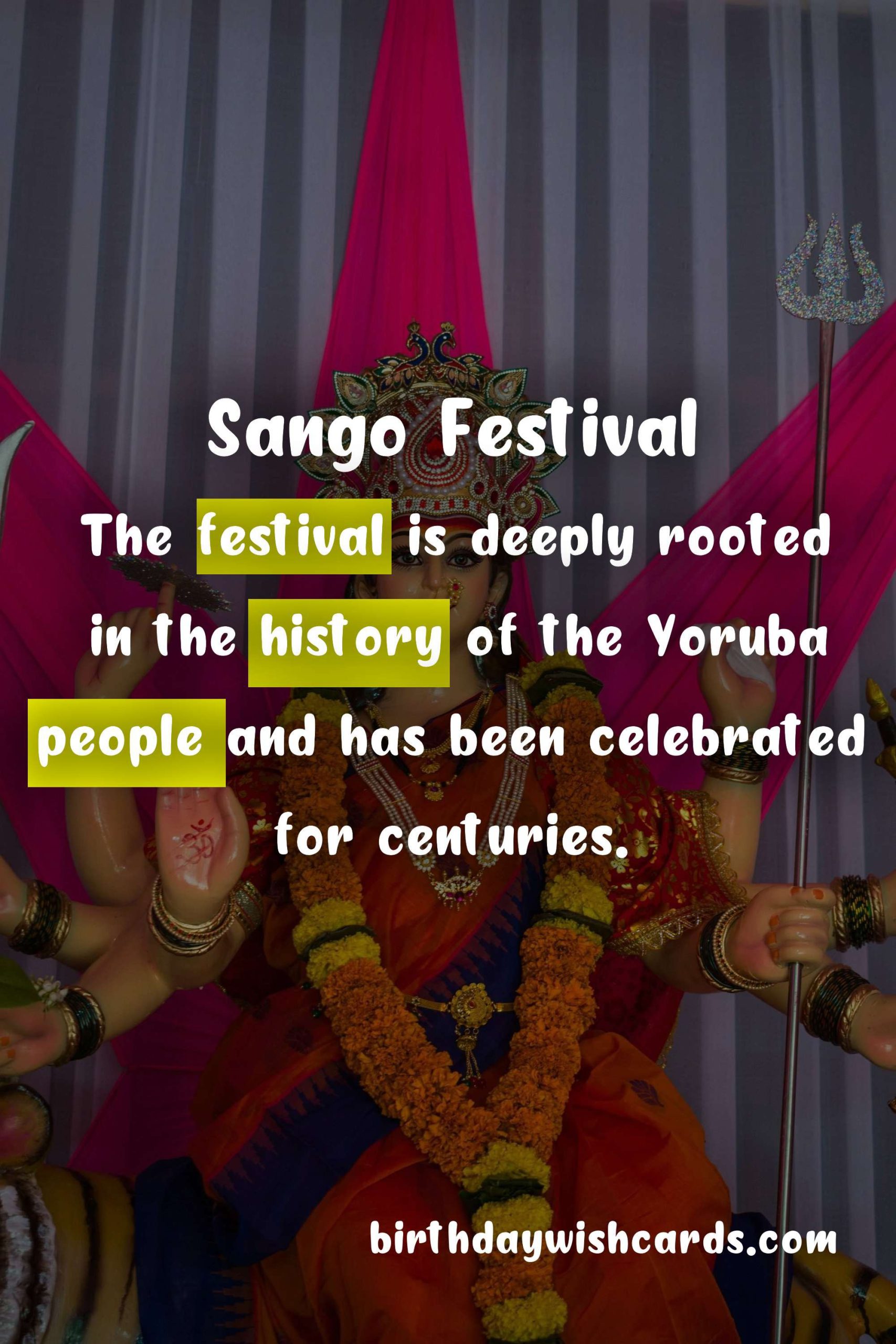
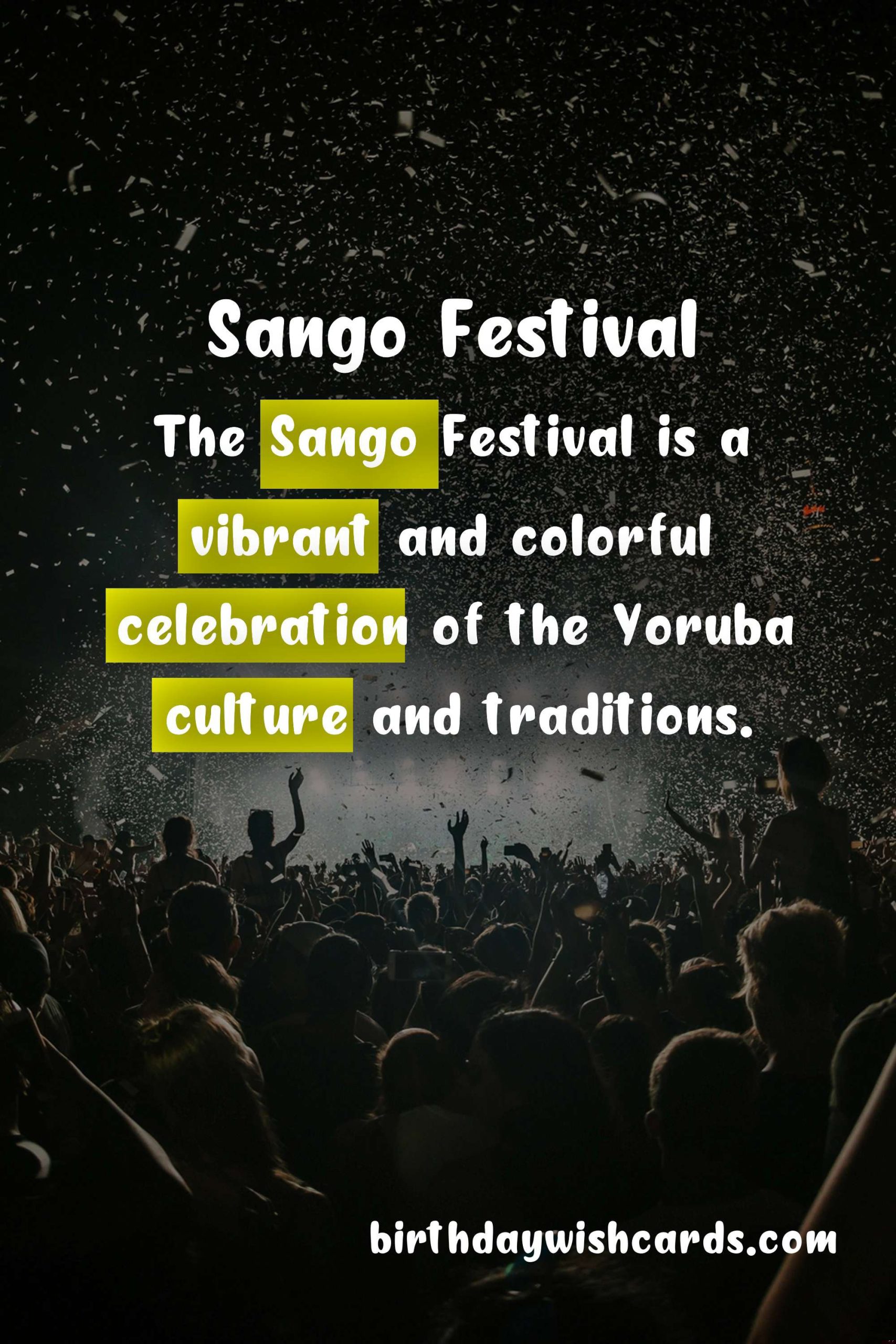
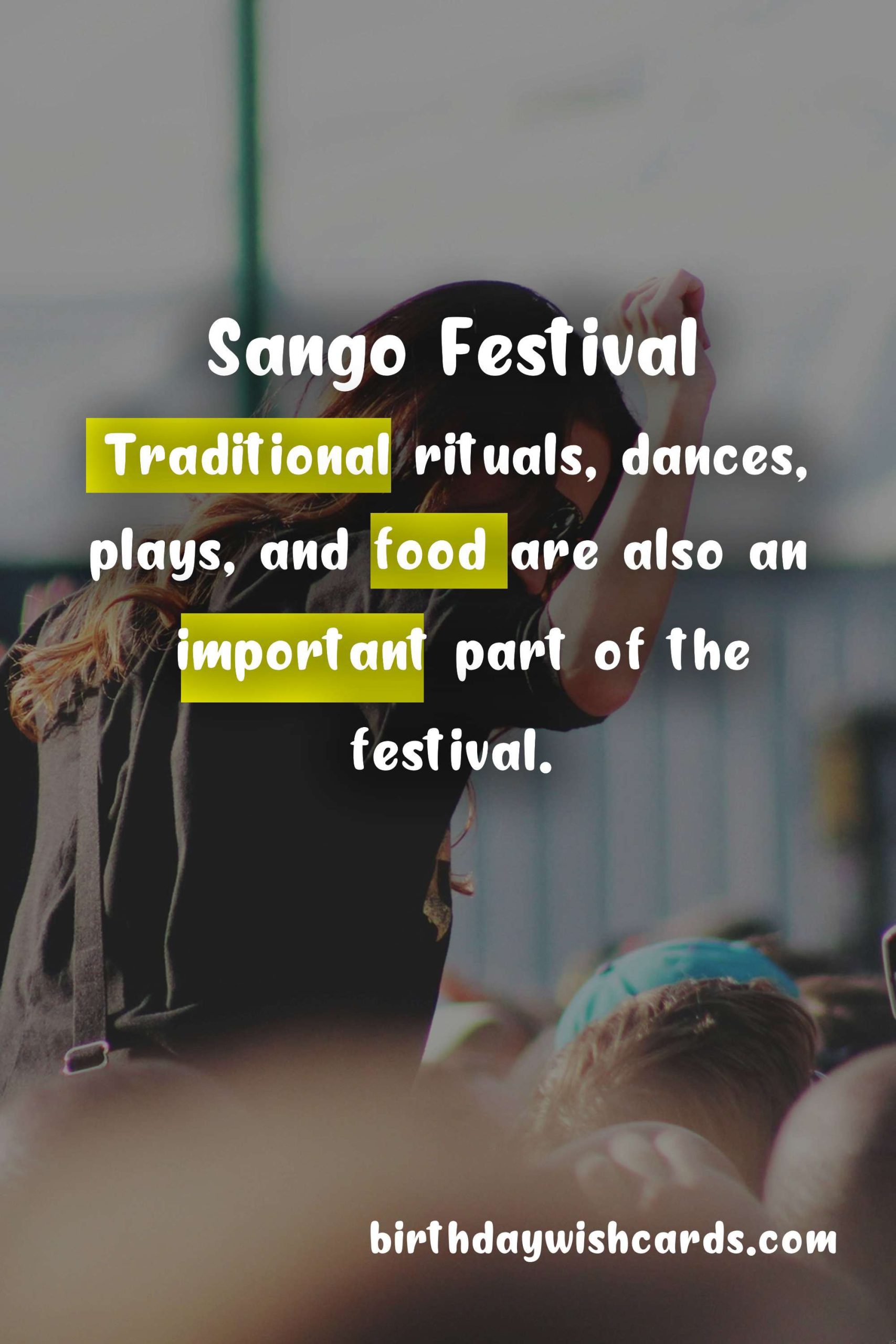
#SangoFestival #AfricanCulture #YorubaTraditions







